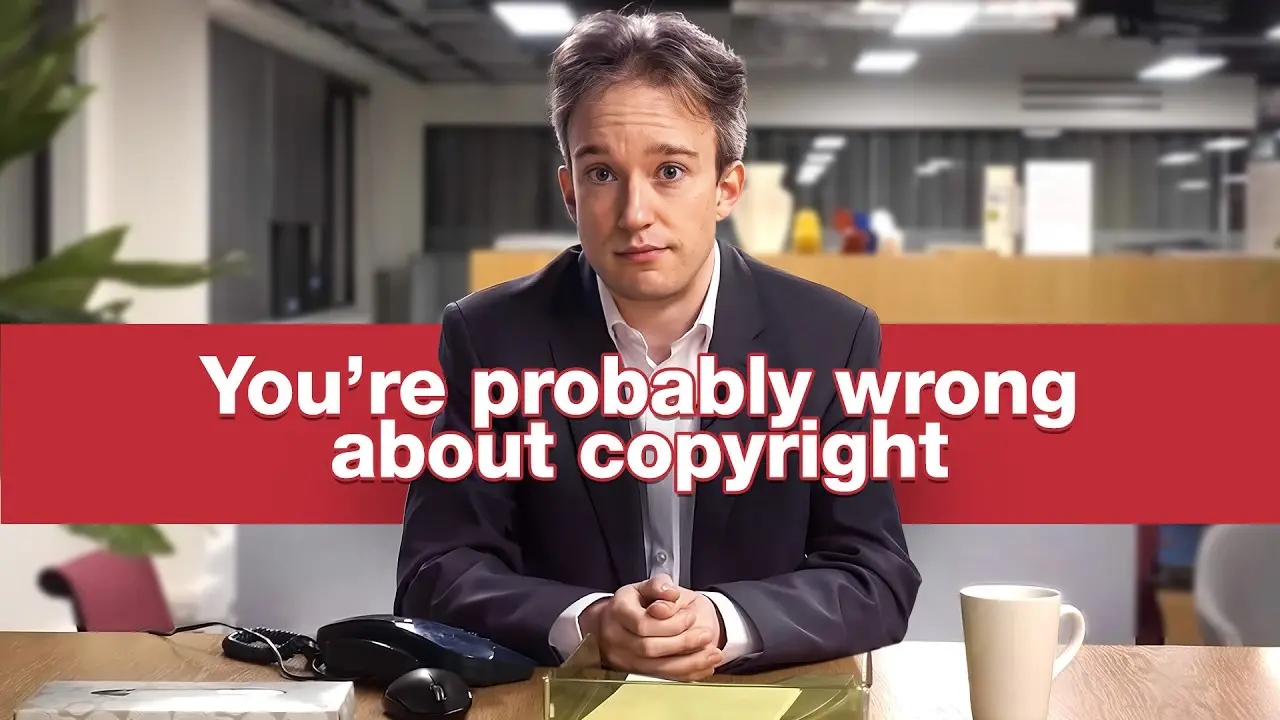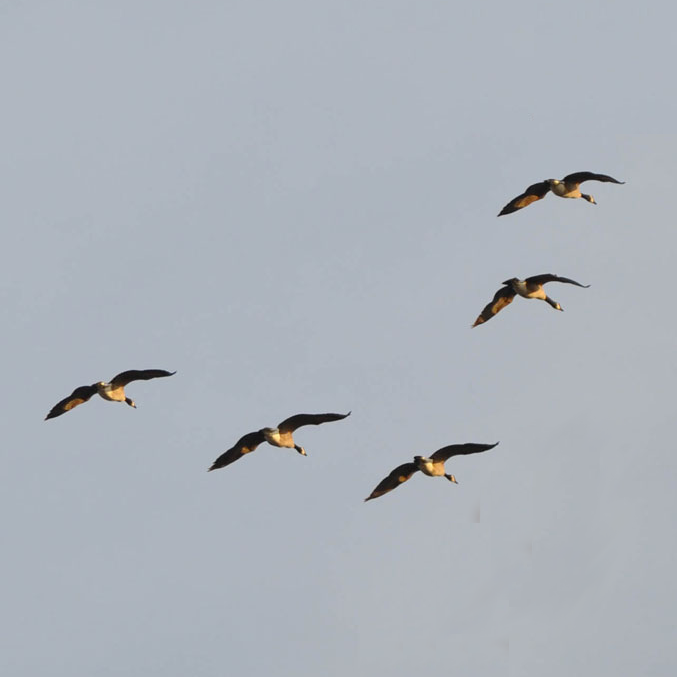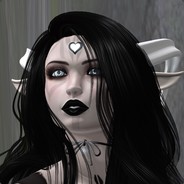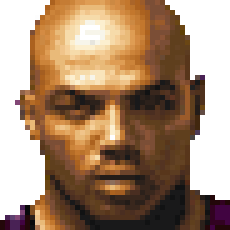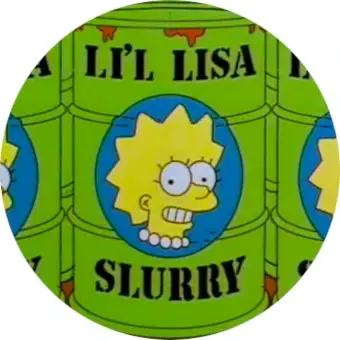So recently there has been a lot of debate on AI-generated art and its copyright. I’ve read a lot of comments recently that made me think of this video and I want to highly encourage everyone to watch it, maybe even watch it again if you already viewed it. Watch it specifically with the question “If an AI did it, would it change anything?”
Right now, AI-generated works aren’t copyrightable. https://www.artnews.com/art-news/news/ai-generator-art-text-us-copyright-policy-1234661683/ This means you can not copyright the works produced by AI.
I work in games so this is more seemingly relevant to me than maybe it is to you. https://techcrunch.com/2023/07/03/valve-responds-to-claims-it-has-banned-ai-generated-games-from-steam/ Steam has outright said, earlier this month, that it will not publish games on its platform without understanding if the training data has been of images that aren’t public domain.
So right now, common AI is producing works that are potentially copyright-infringing works and are unable to be copyrighted themselves.
So with this information, should copyright exist, and if not, how do you encourage artists and scientists to produce works if they no longer can make a living off of it?
Two important videos from two different musicians that are highly relevant:
Copyright is completely broken and only benefits large corporations with the lawyers to enforce it. It is nonsensical and the constant extensions to US copyright have diluted public domain and open-source works. In fact, the constant and rampant breaking of copyright and stretching the definitions of fair use is a side effect of the public’s lack of options in the public domain space.
Related oldie (but good): Everything is a Remix
Right now, AI-generated works aren’t copyrightable. https://www.artnews.com/art-news/news/ai-generator-art-text-us-copyright-policy-1234661683/ This means you can not copyright the works produced by AI.
…
So right now, common AI is producing works that are potentially copyright-infringing works and are unable to be copyrighted themselves.
This kind of judgement is pure symbolic politics, because it’s completely unenforceable and I’m confused why you didn’t mention it. No one can prove if a piece of art is AI made and no one has to admit it. So yes, AI art can be copyrighted, just not officially as AI art, but it certainly will be and likely already is as long as there’s a human ‘stand in’.
There’s a huge gulf of difference between a matter of fact and a matter of law.
No one can prove if a piece of art is AI made and no one has to admit it.
There are tools that are being used to attempt to detect if a piece of work is AI-generated. If those tools say something was, it’s then on you to prove that you hand-created it. Even some artists are already having issues because things “look” AI-generated. The onus is on the creator to prove they have the copyright when dealing with copyright infringement.
So realistically, if you make some AI-generated content, I steal it, what do you do? How do you stop me from using your content?
There are tools that are being used to attempt to detect if a piece of work is AI-generated. If those tools say something was, it’s then on you to prove that you hand-created it.
They don’t work. It’s total bunk.
Even some artists are already having issues because things “look” AI-generated.
Exactly. See above. No one can (confidently) tell which is which. There’s just educated guessing.
They don’t work. It’s total bunk.
I’ll go one further - they can never work. AI is trained using a system where an artist system generates art, and a gatekeeper system gives a confidence rating of how it looks human. The artist system goes through a training process until it can consistently fool the gatekeeper system. If there was a system that existed that could identify currently generated AI art, it would become the new gatekeeper system, and the artist system would only get better.
K so you ignore the entire point in my post that the onus is on the creator to prove they have copyright and just point out it’s hard to figure out which content to steal?
The creator has a copyright if the relevant authorities have granted the copyright registration to them, that is all they need to prove.
Copyright isn’t registered anymore, it’s granted on creation in almost all jurisdictions that matter. It’s not like there’s documentation beyond the published work.
Even if there were tools that can dictate what is AI-generated and what not, they’d have to rely on a pattern, or on an artifact from AI-generated imagery (which, as far as I know, does not exist), and that is what can be used as proof, not the result of the tool itself being used.
The requirement of proof is on the one making the lawsuit. So if you generate AI content and I steal it, you must prove you own the copyright. With AI-generated content, you do not own the copyright. I can take it without issue.
But then, it begs the question, how would you prove it’s an AI work? For all anyone knows, it’s my art, I made it, it’s undistinguishable from what I could make. What the court will see is, I submitted that art in the Internet, you take that, I sue you for copyright, you argue it’s an AI work, and the Court will request you to prove it really is an AI work, and perhaps launching an investigation on me to see whether I really made the AI artwork.
So realistically, if you make some AI-generated content, I steal it, what do you do? How do you stop me from using your content?
Whose content is it? What human person holds the copyright?
In that case, if it’s AI-generated content using a training set from the public domain, the content is generated initially as public domain. Adding changes to that, the changes are not public domain. So you’d have to prove that you changed it and that your work on the AI content was transformative, not derivative. But that’s my point, in that case, there is no one that holds the copyright.
Whoever claims the copyright first, holds it.
The only difference is that up to now there was a very low chance of “collisions” between two humans creating the exact same piece of art at the same time, while now a piece of AI art can be fully replicated given a model, a prompt, and a seed… but in practice, there is still a very low chance of two people randomly happening to use exactly the same model, prompt, and seed… so we’re back to square one: whoever claims it first, holds it.
Just remember to claim your
AI generatedhuman-made art before someone else does.Claiming it doesn’t make it so.
Right now, it kind of does. Like if you took someone else’s work and claimed it as your own: unless they can prove it’s theirs, first one to claim it gets to own the copyright.
Unfair? You bet. There’s things like SafeCreative that has been running for many years (I used to be part of a precursor to that) or even register it as an NFT to have a proof of precedence.
They can prove it’s their by simply showing things like commit logs and creation process. Recreating the work in question. It’s fairly hard to lie about that stuff.
First one to claim it doesn’t own the copyright. They still have to argue they own the copyright through a series of details. Specially if someone claims it’s ai generated.
Upvoted because Tom Scott
deleted by creator
I work in the games industry and can tell you AI isn’t going to get to the point any time soon to fully replace game artists. Likewise, I’m an engineer and chatgpt can generate code from prompts but it’s not very good. The 3d models that ai can generate are terrible. If you are a 3d artist you need not worry about ai.
deleted by creator
I mean every industry right now is a race to the bottom. Everyone is trying to provide a product or service cheaper than their competitor. There are 8 billion people on this planet and everyone is trying to undercut someone else to get enough money to live.
I’m not a lawyer, this is my personal opinion which has no basis in legal fact. Use my words at your own peril.
Tom’s video goes very nicely in-depth, and makes a good argument for why a lot of media, memeing and things in content do not fall under fair use and are considered copyright infringement in US/UK law.
A judge could just as well make a ruling that widens the understanding of fair use in copyright law as they could restrict it in favour of copyright owners. Big firms like Sony do court shop so they will try to find somewhere that would more likely rule in their favour. Just saying it might not be entirely beneficial even for companies with huge coffers to try to define where the line is for fair use through a suit.
Especially for copyrights owned by businesses that have gone under or just completely orphaned copyrighted works, I think the law should be changed such that those rights return to the original creator or the work enters the public domain. I agree with Tom in general that copyright ought to last less than 50 years, ideally 20, but big entertainment ain’t gonna let that happen anytime soon.
Courts and lawyers and the whole system being so trigger-happy with lawsuits in the US just makes my head spin. It is the “land of the fee” after all, the team with big bucks often wins out nowadays.
In any case, I can’t wait for next year for it to be legal to draw a “fanart” Steamboat Willie sporting a very large willy.
The article really oversimplifies things.
In my use case, for example, I do in fact own the copyright to my own art, as a significant portion of it was created by traditional methods using AI as one more tool, not simply by telling it what to make and rolling with it.
III. The Office’s Application of the Human Authorship Requirement
As the agency overseeing the copyright registration system, the Office has extensive experience in evaluating works submitted for registration that contain human authorship combined with uncopyrightable material, including material generated by or with the assistance of technology. It begins by asking “whether the `work’ is basically one of human authorship, with the computer [or other device] merely being an assisting instrument, or whether the traditional elements of authorship in the work (literary, artistic, or musical expression or elements of selection, arrangement, etc.) were actually conceived and executed not by man but by a machine.” [23]
In the case of works containing AI-generated material, the Office will consider whether the AI contributions are the result of “mechanical reproduction” or instead of an author’s “own original mental conception, to which [the author] gave visible form.” [24]
The answer will depend on the circumstances, particularly how the AI tool operates and how it was used to create the final work.[25]
This is necessarily a case-by-case inquiry.
If a work’s traditional elements of authorship were produced by a machine, the work lacks human authorship and the Office will not register it.[26]
For example, when an AI technology receives solely a prompt [27]
from a human and produces complex written, visual, or musical works in response, the “traditional elements of authorship” are determined and executed by the technology—not the human user. Based on the Office’s understanding of the generative AI technologies currently available, users do not exercise ultimate creative control over how such systems interpret prompts and generate material. Instead, these prompts function more like instructions to a commissioned artist—they identify what the prompter wishes to have depicted, but the machine determines how those instructions are implemented in its output.[28]
For example, if a user instructs a text-generating technology to “write a poem about copyright law in the style of William Shakespeare,” she can expect the system to generate text that is recognizable as a poem, mentions copyright, and resembles Shakespeare’s style.[29]
But the technology will decide the rhyming pattern, the words in each line, and the structure of the text.[30]
When an AI technology determines the expressive elements of its output, the generated material is not the product of human authorship.[31]
As a result, that material is not protected by copyright and must be disclaimed in a registration application.[32]
In other cases, however, a work containing AI-generated material will also contain sufficient human authorship to support a copyright claim. For example, a human may select or arrange AI-generated material in a sufficiently creative way that “the resulting work as a whole constitutes an original work of authorship.” [33]
Or an artist may modify material originally generated by AI technology to such a degree that the modifications meet the standard for copyright protection.[34]
In these cases, copyright will only protect the human-authored aspects of the work, which are “independent of” and do “not affect” the copyright status of the AI-generated material itself.[35]
This policy does not mean that technological tools cannot be part of the creative process. Authors have long used such tools to create their works or to recast, transform, or adapt their expressive authorship. For example, a visual artist who uses Adobe Photoshop to edit an image remains the author of the modified image,[36]
and a musical artist may use effects such as guitar pedals when creating a sound recording. In each case, what matters is the extent to which the human had creative control over the work’s expression and “actually formed” the traditional elements of authorship.[37]
This is misinformation. You can copyright AI works.
It’s not misinformation:
In other cases, however, a work containing AI-generated material will also contain sufficient human authorship to support a copyright claim. For example, a human may select or arrange AI-generated material in a sufficiently creative way that “the resulting work as a whole constitutes an original work of authorship.” Or an artist may modify material originally generated by AI technology to such a degree that the modifications meet the standard for copyright protection. In these cases, copyright will only protect the human-authored aspects of the work, which are “independent of” and do “not affect” the copyright status of the AI-generated material itself.
So this means work generated by AI is not copyrightable. The work generated by human touch is. https://www.federalregister.gov/documents/2023/03/16/2023-05321/copyright-registration-guidance-works-containing-material-generated-by-artificial-intelligence which is the original source of your post.
“You can not copyright works produced by AI.” is a 100% true and factual statement. You can have the AI work as a part of a bigger thing that you retain the copyright on or you can modify it and retain copyright on only the modifications but the AI work in itself is not copyrightable and your copyright on the bigger thing doesn’t supersede the lack of the copyright on the AI works.
So in the case in question where someone used AI work to generate images for a comic book. The comic book itself is under copyright but anyone can take those images and modify them, redistribute them without credit, etc. Just like if you used AI images for textures in a game, the game is under copyright but those textures could be lifted out of the game and used elsewhere.
In other cases, however, a work containing AI-generated material will also contain sufficient human authorship to support a copyright claim. For example, a human may select or arrange AI-generated material in a sufficiently creative way that “the resulting work as a whole constitutes an original work of authorship.” Or an artist may modify material originally generated by AI technology to such a degree that the modifications meet the standard for copyright protection. In these cases, copyright will only protect the human-authored aspects of the work, which are “independent of” and do “not affect” the copyright status of the AI-generated material itself.
So this means work generated by AI is not copyrightable. The work generated by human touch is. https://www.federalregister.gov/documents/2023/03/16/2023-05321/copyright-registration-guidance-works-containing-material-generated-by-artificial-intelligence which is the original source of your post.
There are no AI works that fit this description though. When most people think of AI works they’re thinking of the former, not the latter. So saying “Right now, AI-generated works aren’t copyrightable.” without making the distinction is misinformation designed to spread doubt.
There are no AI works that fit this description though.
There are AI works every day that fit that description. The art in question in the comic book case was not modified and could be taken from the page and used somewhere else with the exception of the words.
So saying “Right now, AI-generated works aren’t copyrightable.” without making the distinction is misinformation designed to spread doubt.
You are arguing in bad faith by implying that my intent is to spread doubt through misinformation. Don’t assume things like that. You have no clue of my intentions.
I’m not trying to “spread doubt”. I’m simply giving the information as is. If you want to have a conversation about the facts, let me know. If you are here to argue in bad faith then I can’t help you.
There are AI works every day that fit that description. The art in question in the comic book case was not modified and could be taken from the page and used somewhere else with the exception of the words.
Where does the article you linked it say this?
The registrar does say this though.
You are arguing in bad faith by implying that my intent is to spread doubt through misinformation. Don’t assume things like that. You have no clue of my intentions.
I’m not trying to “spread doubt”. I’m simply giving the information as is. If you want to have a conversation about the facts, let me know. If you are here to argue in bad faith then I can’t help you.
I’m not accusing you of arguing in bad faith or intentionally spreading information, I’m letting you know that you’re repeating the talking points of those who do.
There are AI works every day that fit that description. The art in question in the comic book case was not modified and could be taken from the page and used somewhere else with the exception of the words.Where does the article you linked it say this?
In other cases, however, a work containing AI-generated material will also contain sufficient human authorship to support a copyright claim. For example, a human may select or arrange AI-generated material in a sufficiently creative way that “the resulting work as a whole constitutes an original work of authorship.The registrar does say this though.
Literally the next lines.
In these cases, copyright will only protect the human-authored aspects of the work, which are “independent of” and do “not affect” the copyright status of the AI-generated material itself.
The copyright of the comic as a product is one thing, the copyright of the individual images is another.
I’m not accusing you of arguing in bad faith or intentionally spreading information, I’m letting you know that you’re repeating the talking points of those who do.
Well, I am letting you know you are at this point, clearly ignoring the videos, and articles, and even not reading the article you’ve linked. As the article you even linked states clearly.
The Copyright Office weighed in for the first time last month on whether its output is copyrightable, finding Midjourney-generated images in Kris Kashtanova’s comic book “Zarya of the Dawn” could not be protected, though Kashtanova’s text and unique arrangement of the book’s elements could.
So you could go take the images out of the comic book and reuse them because they are not copyrighted.
So you could go take the images out of the comic book and reuse them because they are not copyrighted.
You’re begging the question by assuming such content hasn’t been modified and could be taken in the first place. How would you know the content you’re eyeing is usable without violating any rights or laws?
Copyright law is one big “It depends” making sweeping statements like made and the headline of the article you linked are oversimplifying the issue and presenting a false dichotomy of a much more nuanced issue. The Reuters article I linked presents much less biased coverage that doesn’t gloss over important facts.
This is important. I also question the idea that copyright law might be “broken.” It might need an update, as most laws do, simply because it’s behind the times. The whole conception of this video is to spread doubt, from its sensationalist headline to the content, from which you have extracted the key points of it that wish to spread doubt. Legal systems worldwide need to catch up and develop as fast as technology and software develops now. That’s the problem. Nothing broken here. Outdated? Perhaps.


